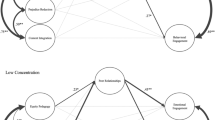Abstract
This study reports a subset of findings from a larger, ongoing study aimed at exploring interactions between teacher identity, learning, and classroom practices in a social justice teacher education program at a selective liberal arts college in New York. This case-study explores the journey of Elena, as an immigrant, a student, and a pre-service teacher candidate towards becoming a social justice educator. Elena reflects upon her school language experiences as an immigrant youth, her learning in a social justice teacher education program, and her field experiences in an international high school. The analysis spans macro-, meso-, and microlevels to explore the ways globalization, particularly immigration, as well as schooling policies for English language learners interact with aspects of Elena’s core identity, particularly in school settings. The findings show some of the ways language and literacy verified and/or denied aspects of Elena’s core identity; specific instances where second language proficiency was cast as power and privilege versus disadvantage according to ethnic, language, and class categorizations; and the struggles Elena, and other immigrant youth may face given the focus on English language acquisition and high stakes accountability in schools, at the expense of students’ primary language proficiency and affirmation of core identity markers.

Similar content being viewed by others
References
Benhabib, S. (2004). The rights of others: Aliens, residents, and citizens. UK: Cambridge.
Brown, B. A. (2006). “It isn’t no slang that can be said about this stuff”: Language, identity, and appropriating science discourse. Journal of Research in Science Teaching, 43, 96–126.
Capps, R., Fix, M., Murray, J., Ost, J., Passel, J. S., & Herwantoro, S. (2005). The new demography of America’s schools: Immigration and the No Child Left Behind Act. Policy Report. Washington D.C.: The Urban Institute. Retrieved 17 October 2007, from http://www.urban.org/UploadedPDF/311230_new_demography.pdf
Castles, S. (2007). Twenty-first-century migration as a challenge to sociology. Journal of Ethnic and Migration Studies, 33, 351–371.
Connelly, F. M., & Clandinin, D. J. (1991). Narrative inquiry: Storied experience. In E. C. Short (Ed.), Forms of curriculum inquiry (pp. 121–153). Albany, NY: SUNY.
Derrida, J. (1998). Monolingualism of the other or the prosthesis of origin (P. Mensah, Trans.). Stanford, CA: Stanford (original work published 1996).
Emdin, C., & Lehner, E. (2006). Situating cogenerative dialogue in a cosmopolitan ethic. Forum Qualitative Sozialforschung/Forum: Qualitative Social Research [On-line Journal], 7(2), Art. 39. Retrieved 3 February 2007, from http://www.qualitative-research.net/fqs-texte/2-06/06-2-39-e.htm
Fine, M., Jaffe-Walter, R., Pedraza, P., Futch, V., & Stoudt, B. (2007). Swimming: On oxygen, resistance, and possibility for immigrant youth under siege. Anthropology & Education Quarterly, 38, 76–96.
Gee, J. P. (1999). Introduction to discourse analysis: Theory and method. New York, NY: Routledge.
Gee, J. P. (2004). Language in the science classroom: Academic social languages as the heart of school-based literacy. In R. K. Yerrick & W.-M. Roth (Eds.), Establishing scientific classroom discourse communities: Multiple voices of teaching and learning research (pp. 19–44). Mahwah, NJ: Lawrence Erlbaum.
Lee, O. (2005). Science education with English language learners: Synthesis and research agenda. Review of Educational Research, 75, 491–530.
Moore, F. M. (2007). Language in science education as a gatekeeper to learning, teaching, and professional development. Journal of Science Teacher Education, 18, 319–343.
Portes, A. (2007). Migration, development, and segmented assimilation: A conceptual review of the evidence. The Annals of the American Academy of Political and Social Science, 610, 73–97.
Roth, W.-M. (2004). Telling in purposeful activity, the emergence of scientific language. In R. K. Yerrick & W.-M. Roth (Eds.), Establishing scientific classroom discourse communities: Multiple voices of teaching and learning research (pp. 45–78). Mahwah, NJ: Lawrence Erlbaum.
Solórzano, D. G. (1998). Critical race theory, race and gender microaggressions, and the experience of Chicana and Chicano scholars. Qualitative Studies in Education, 11, 121–136.
Starke-Meyerring, D. (2005). Meeting the challenges of globalization: A framework for global literacies in professional communication programs. Journal of Business and Technical Communication, 19, 468–499.
Stiglitz, J. E. (2003). Globalization and its discontents. New York, NY: Norton.
Strauss, A., & Corbin, J. (1998). Basics of qualitative research: Techniques and procedures for developing grounded theory. Thousand Oaks, CA: Sage.
Turner, J. H. (2002). Face to face: Toward a sociological theory of interpersonal behavior. Stanford, CA: Stanford University Press.
Valenzuela, A. (1999). Subtractive schooling: U.S.–Mexican youth and the politics of caring. Albany: SUNY.
Verdugo, R. R., & Flores, B. (2007). English-language learners: Key issues. Education and Urban Society, 39, 167–193.
Acknowledgements
The author would like to acknowledge Lee Anne Bell and Felicia M. Moore, for their comments on an earlier version of this paper.
Author information
Authors and Affiliations
Corresponding author
Rights and permissions
About this article
Cite this article
Rivera Maulucci, M.S. Intersections between immigration, language, identity, and emotions: a science teacher candidate’s journey. Cult Stud of Sci Educ 3, 17–42 (2008). https://doi.org/10.1007/s11422-007-9074-9
Received:
Accepted:
Published:
Issue Date:
DOI: https://doi.org/10.1007/s11422-007-9074-9




